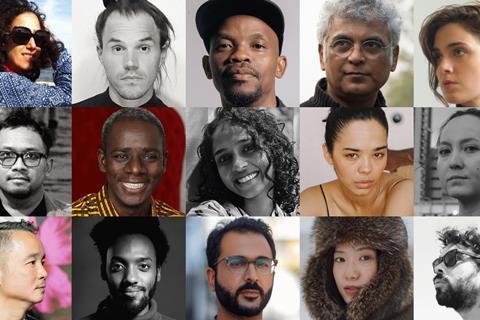International Film Festival Rotterdam (IFFR)’s Hubert Bals Fund (HBF) has selected 15 feature film projects for its 2025 development support sch
International Film Festival Rotterdam (IFFR)’s Hubert Bals Fund (HBF) has selected 15 feature film projects for its 2025 development support scheme, including recent work by prize-winning directors such as Malaysia’s Amanda Nell Eu, Senegal’s Mamadou Dia, Syria’s Farida Baqi and Mongolia’s Xiaoxuan Jiang.
The 15 projects, which will receive a grant of €10,000 to support their development, were selected from more than 900 applications. The fund aims to support recent and diverse voices from across the globe.
For the first time, the HBF is backing a project from Tanzania, which joins projects from a number of territories rarely supported in the Fund’s history.
Filmmakers from Syria, Albania and Cuba are notable inclusions in this round, as well as another three projects from sub-Saharan Africa: Mozambique, Rwanda and Senegal.
Tanzanian filmmaker Amil Shivij’s satirical project Last Cow is set in a remote Maasai village where a cow becomes a sensation after surviving an arrow to the neck, leading to a critique of conservation and tourism at the expense of indigenous communities and ancestral lands. Shivij’s feature Tug Of War (2021) screened at TIFF and was Tanzania’s second-ever submission to the Academy Awards. The project is co-produced by Ethiopian-Canadian producer and Rotterdam Lab alum Tamara Dawit.
Amanda Nell Eu’s Lotus Feet is a fantastical body horror drawing on the tale of the Malaysian folk monsteress known as the Penanggalan that haunts pregnant women and newborns. Her Tiger Stripes won the top prize in the Cannes Critics Week in 2024 and was a Dutch co-production with Ellen Havenith of PRPL, who will also co-produce the upcoming feature.
Also from Malaysia is Chris Chong Chan Fu’s Kuala Lumpur-set Moto, where the encounters of a motorcyclist show a glimpse of humanity amid the rapidly developing metropolis. His film Karaoke (2009) screened in Cannes Directors’ Fortnight.
Inadelso Cossa’s fiction feature debut Mwadia is billed as a surrealistic, magical realist reflection on Mozambique’s colonial past and present trauma, through a fable of a woman’s journey to save her husband. The director’s The Nights Still Smell of Gunpowder (2024) screened in Berlinale Forum and CPH:DOX.
Senegalese filmmaker Mamadou Dia’s HBF-backed debut Nafi’s Father won the Pardo d’Oro in Locarno’s Cineasti del Presente section in 2019. His latest project, Coumba, follows a detective returning to her hometown to investigate a murder tied to Coumba, a hoofed spirit, on the year’s first full moon.
Syrian filmmaker Farida Baqi’s The Visual Feminist Manifesto won the IFFR 2025 Youth Jury Award. She’s supported for her next project, The Rapture, which explores the sexual awakening of an Arab woman in her 50s.
Xiaoxuan Jiang’s debut To Kill A Mongolian Horse had its world premiere in the Giornate degli Autori in Venice in 2024, where it won a special mention. Her recent project is Girl With A Camera, about a adolescent, ambitious scholar arriving at her remote field site in Inner Mongolia, where she has to confront the messy dynamics between scholar and subject.
Set in Barcelona during the 1992 Olympics, Cuban filmmaker Carlos Lechuga’s Amateur follows an impossible, forbidden love between two men from the Cuban sports delegation. His debut Melaza screened at IFFR 2013, followed by Santa y Andrés (2016) and Vicenta B (2022) which both premiered at TIFF.
Following a mercenary in Byzantium, Albanian/Greek director Neritan Zinxhiria is supported for his feature debut The Appalling Human Voice Of The Animals. His brief film Light Of Light screened in the Tiger Short Competition at IFFR 2023.
Rwanda’s past and present are the subject of Moise Ganza’s debut feature project Tears, told through the story of Mugema, a YouTuber obsessed with finding the self-professed Kibogo, a mystical journey through a world of peculiar characters, sacrifices, rituals, cursed objects and the living dead.
Indonesian and Amsterdam-based visual artist and researcher Timoteus Anggawan Kusno, the subject of an IFFR 2025 Focus programme, is supported for his feature debut Oprhaned Atlas. Set in a remote village surrounded by forest, it is billed as a politically charged fable about state violence, inherited trauma, and the breakable resistance of memory.
Renata Dzhalo’s Nobody To See Us draws on her mother’s story to explore the cruelty of early-2000s Russia, as Olya seeks to divorce a vanished husband from Guinea-Bissau, father of her child. Dzhalo’s feature debut On This Land premiered in Bright Future at IFFR 2025.
Brazilian filmmaker Stephanie Ricci’s project Boca Da Noite is a nocturnal portrait of São Paulo’s historic centre and its inhabitants, following the 70-year-old Areta’s adventure on the hunt for a 24-hour locksmith. Her brief Quem Se Move screened in the IFFR 2025 Short & Mid-length programme.
Two projects by Indian filmmakers are awarded in the selection. Arya Rothe’s Where Shadows Wait is about 14-year-old Manu who embarks on a magical realist journey to reconnect with her father in the last months of his life. Her co-directed project A Rifle And A Bag received a special mention in the Bright Future Competition at IFFR 2020.
Suman Mukhopadhyay’s project The Immigrants is set against the backdrop of the 1947 partition of India. It will be his tenth feature film, following his IFFR 2025 Big Screen Competition title The Puppet’s Tale.
Tamara Tatishvili, head of the Hubert Bals Fund, said: “The Development Support scheme from HBF is one of the very few working internationally that offers this kind of trust and funding to projects at their genesis, and provides a vital launchpad for artists.”

COMMENTS